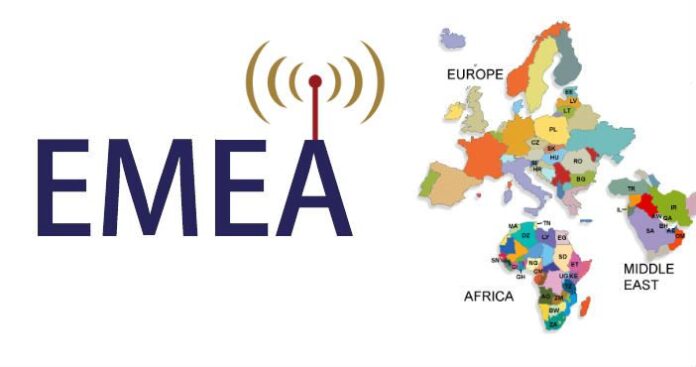Although Europe lags other regions in LTE adoption, the region is pushing hard to develop “5G.” Of all the countries involved, it seems the United Kingdom is pushing the hardest.
The country recently hosted the “5G Huddle” conference, following a pledge by flamboyant London mayor Boris Johnson that his city would deploy the world’s first major 5G network by 2020. Johnson also promised Londoners they’d be able to download a movie to their mobile phones in less than one second.
“London is earning a reputation for being the tech capital of Europe and that is why we need to ensure every Londoner is able to access the very best digital connectivity,” Johnson told the Telegraph.
But the European drive for 5G is not limited to the United Kingdom. Vodafone, while headquartered outside of London, recently partnered with a 5G lab in Dresden, Germany. Nokia is also contemplating creating a 5G test network in Finland as early as 2015.
Europe has put some real money behind the effort. In 2013, the European Commission gave €700 million ($887.3 million) toward developing a ubiquitous 5G technology as part of an overall €20 billion ($25.4 billion) innovation investment plan called Horizon 2020. The commission also created a 5G public private partnership.
While South Korea appears to be pushing even harder for the next generation technology — the government is investing $1.5 billion — Europe responded by partnering with South Korea on establishing 5G standards.
One problem: No one has defined clearly what 5G is yet, though proponents always mention that it will be fast. Ericsson did an in-lab trial of technology this summer that achieved 5 gigabits per second – 250 times faster than LTE. Although that should do nicely for Johnson’s one-second movie proposal, it remains to be seen whether such speeds can be achieved outside the lab.
The move to 5G is also supposed to drive the “Internet of Things,” making machine-to-machine technology more feasible, spawn a revolution in e-health and be more energy efficient than 4G. How it will do all these things remains a bit opaque, but we are still six years out from the hoped-for delivery goal of 2020.
So why are European nations driving so hard for a technology that is still in the very early stages? First of all they want the jobs. According to the EU, the mobile telecom industry in Europe accounts for about 1.3 million jobs and represents an economy worth about €160 billion ($202.8 billion). As the outgoing VP in charge of the EU’s agenda, Neelie Kroes, has made abundantly clear, the EU wants to jump on 5G to reap the economic benefits.
“I want 5G to be pioneered by European industry, based on European research and creating jobs in Europe — and we will put our money where our mouth is,” Kroes said when announcing an additional €50 million ($63 million) in EU research grants last year.
There’s also another pressing reason for Europe: security. Following the NSA scandal, the EU and individual countries have been desperately scrambling to impose some control over their digital borders in the face of a U.S.-dominated internet. By leading the 5G effort, Europe could gain more influence as U.K.’s David Willetts, a conservative member of parliament, noted at the 5G Huddle. “It’s far better if the industry can be early on driving the standards and protocols that will properly protect privacy,” he said.
When all is said and done, it is possible that Europe could take the lead on 5G. After all, the region does have a lot of the knowhow in its backyard with Nokia, Ericsson and Alcatel-Lucent all headquartered on the continent.
However, with all the noise over 5G in Europe, it has been relatively quiet on the other side of the pond, and U.S. companies were conspicuously absent from London’s 5G Huddle. But that doesn’t mean that U.S. tech companies and research labs aren’t working on the next generation of mobile technology, and it’s hard to imagine that they have any intention of being left behind in the race for 5G.

